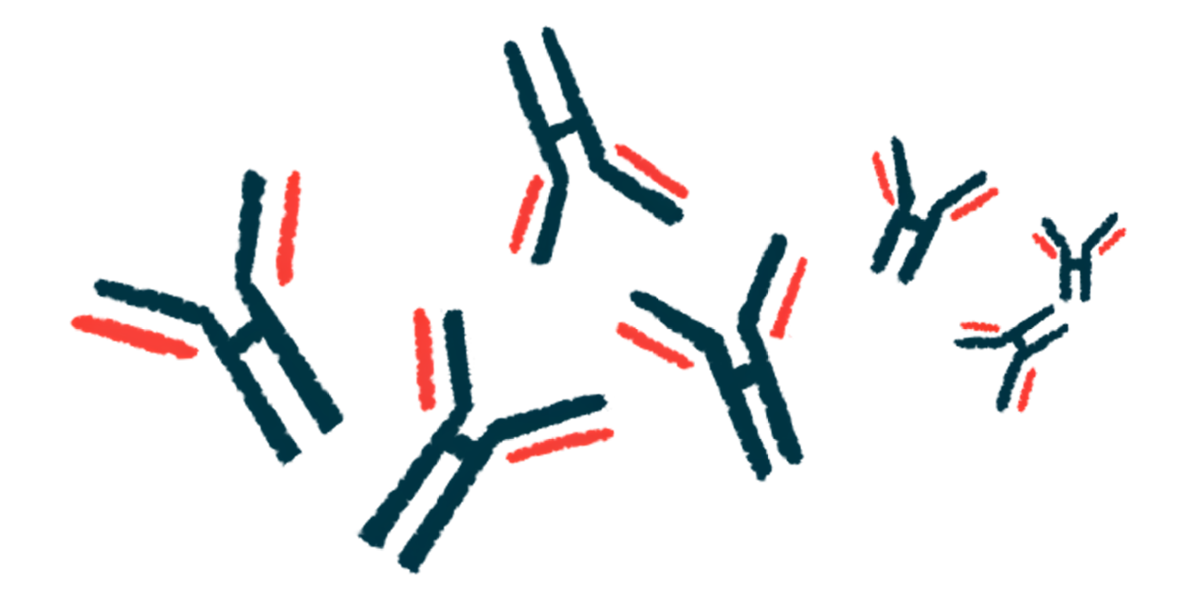Antibodies against MLC1 protein may drive MS: Study
As part of study, immune responses against 23,000+ proteins were examined
Written by |

Antibodies against a protein found in neurons and in nerve supporting cells, may play a role in driving multiple sclerosis (MS), a study indicates.
Researchers examined immune responses against more than 23,000 human proteins, and the MLC1 protein emerged as one of the top hit proteins targeted by immune B-cells derived from MS patients.
The study, “Modulator of VRAC Current 1 Is a Potential Target Antigen in Multiple Sclerosis,” was published in Neurology Neuroimmunology and Neuroinflammation.
MS is caused by inflammation that damages nerve cells in the brain and spinal cord. While the mechanisms that drive that inflammation in MS aren’t fully understood, B-cells appear to play a major role.
B-cells are a type of immune cell that produce antibodies, that is, proteins that attack specific molecular targets, known as antigens. While antibodies are essential for fighting infections and other threats, in MS, it’s believed that certain antibodies mistakenly attack antigens from healthy brain cells, triggering an erroneous immune response against those cells and causing nerve damage.
While some proteins have been identified as possible antigens in MS, including the brain protein GlialCAM, there doesn’t seem to be one single target antigen for all cases of MS. Pinning down other antigens that may be targeted in MS might lead to more effective therapies.
“The target antigen of MS has long been a mystery and there seems to be no defined single target antigen,” Stefanie Kürten, PhD, co-author of the study at University Hospital Bonn in Germany, said in a university news story.
A role for MLC1 in MS?
Here, researchers collected B-cells from 20 MS patients and nine people without the disease, then exposed the cells to more than 23,000 different human proteins. B-cells from MS patients had heightened antibody responses to a variety of proteins, results showed, but the protein MLC1 caught the researchers’ eye.
MLC1 (short for modulator of VRAC current 1) is found in nerve cells and astrocytes, or star-shaped cells that support nerve function. It’s known to physically interact with GlialCAM.
“[MLC1] is a very interesting candidate because the protein is expressed on astrocytes and neurons. MLC1 is also a binding partner of GlialCAM,” said Alicia Weier, a doctoral student at the University of Bonn and co-first author of the study.
Analyses of samples from separate subsets of people with or without MS confirmed the original findings, suggesting B-cells from MS patients are more reactive to MLC1 than B-cells from people without the disease.
MS patients had higher levels of anti-MLC1 antibodies in their blood and in the fluid around their brains. Antibodies against MLC1 also were elevated in samples from people with other inflammatory neurological diseases.
In a final set of tests, the researchers injected anti-MLC1 antibodies into mice with MS-like disease. The antibodies were found to bind strongly to cerebral cortical neurons, nerve cells in the brain’s outermost part. Also, four of the seven mice given anti-MLC1 antibodies died less than a day after being injected, whereas all the mice that weren’t given the antibodies survived.
The data suggest “anti-MLC1 antibodies played a role in aggravating disease severity,” wrote the researchers, who emphasized that more studies are needed to further explore the potential role of anti-MLC1 antibodies in MS. “Further experiments with a larger sample size will have to be performed to verify the findings regarding the [disease-causing ability] of MLC1-specific antibodies.”
